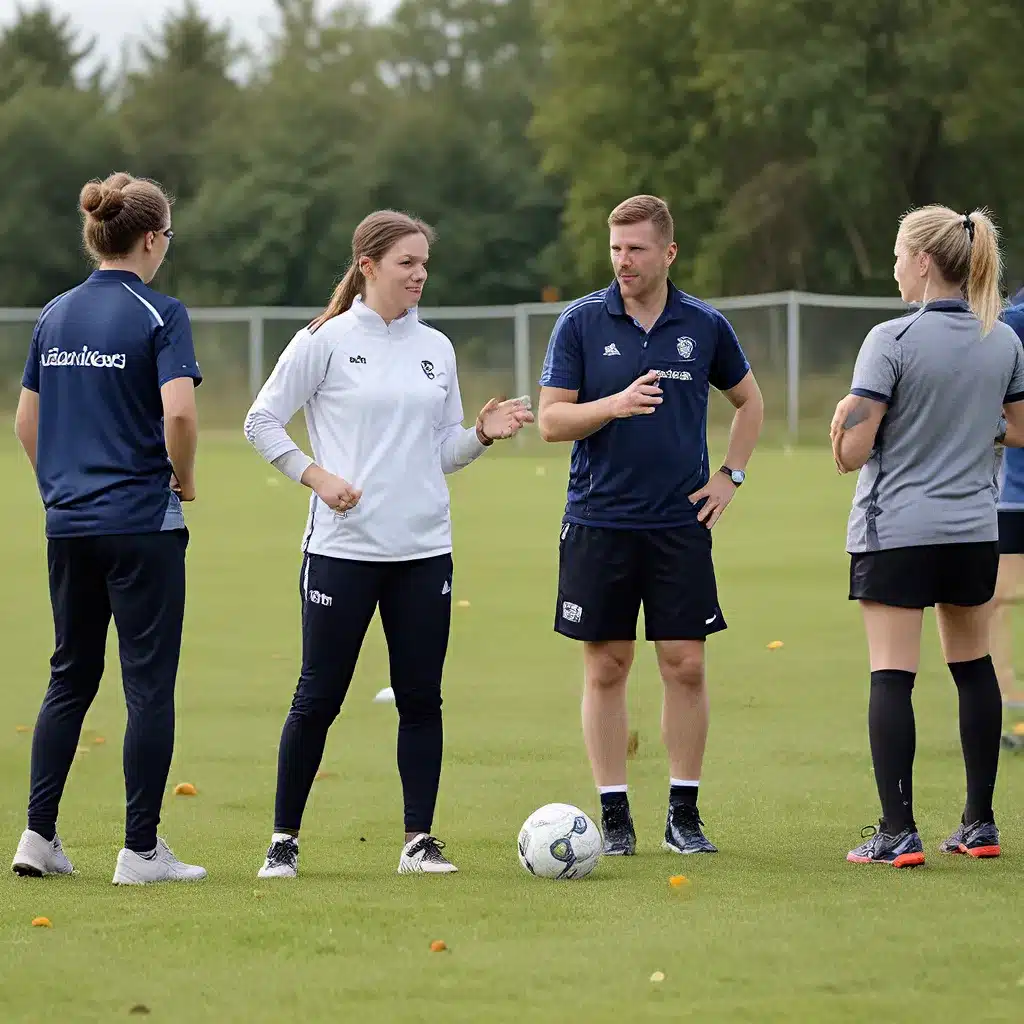
In the heart of Kent, where the Kent Football League reigns supreme, a new generation of football managers is emerging, eager to lead their teams to glory. As the local football community gathers for the annual Kent League Coaching Clinic, we sit down with some of the league’s most successful and experienced coaches to uncover the secrets behind their winning strategies.
The Importance of Player Development
Nick Kent, a seasoned manager with over a decade of experience in the Kent Football League, emphasizes the significance of player development. “It’s not just about tactics and formations,” he explains. “The true key to success lies in nurturing the raw talent of your players and helping them reach their full potential.”
Kent’s approach to player development is multifaceted. “We don’t just focus on the technical aspects of the game,” he says. “We also work on their physical conditioning, tactical awareness, and mental resilience. It’s about creating well-rounded, confident players who can thrive in any situation.”
One of the ways Kent achieves this is by encouraging his players to participate in frequent training sessions and match simulations. “We don’t just run drills; we create game-like scenarios that challenge the players to make quick decisions and adapt to changing circumstances.”
The Art of Team Building
Joanna Hastings, a rising star in the Kent Football League coaching scene, emphasizes the importance of team building. “It’s not enough to have a collection of talented individuals,” she explains. “You need to mold them into a cohesive unit that works together seamlessly.”
Hastings’ approach to team building involves fostering a sense of camaraderie and mutual respect among her players. “I encourage my players to support each other, both on and off the pitch,” she says. “We have regular team-building exercises, and I make sure everyone’s voice is heard during tactical discussions.”
This focus on team dynamics has paid dividends for Hastings’ squad. “We’ve seen a noticeable improvement in our on-field communication and decision-making,” she reveals. “The players trust each other, and that translates into more effective teamwork and a stronger collective performance.”
Embracing the Local Community
For David Wilkins, a long-time Kent Football League manager, engaging with the local community is crucial to the success of his team. “We’re not just a football club; we’re a part of the fabric of this community,” he says. “That’s why it’s so important for us to connect with our fans and give back to the people who support us.”
Wilkins’ team regularly participates in community events, such as charity fundraisers and youth development clinics. “It’s not just about winning matches,” he explains. “It’s about building a sense of pride and belonging within the local football community.”
This community-focused approach has had a tangible impact on Wilkins’ team. “Our players feel a deeper sense of responsibility to their community,” he says. “They know that their performance on the pitch has a direct impact on the morale and well-being of the people who cheer them on.”
Adapting to Challenges
In the ever-changing landscape of the Kent Football League, managers must be adaptable and ready to face unexpected challenges. Sarah Langford, a respected coach with a proven track record, shares her insights on navigating these obstacles.
“You can’t always predict what’s going to happen on the pitch,” Langford says. “Injuries, suspensions, and sudden changes in team dynamics can throw a wrench in even the best-laid plans. That’s why it’s so important to be agile and ready to adjust your strategy on the fly.”
Langford’s approach to problem-solving involves a combination of analytical thinking and emotional intelligence. “I’m constantly monitoring the performance of my players and the dynamics within the team,” she explains. “If I see something that needs to be addressed, I’m not afraid to make tough decisions and implement changes, even if it means shaking up the status quo.”
This willingness to adapt has served Langford and her team well. “We’ve been able to bounce back from setbacks and maintain a high level of competitiveness, even in the face of adversity,” she says. “It’s all about staying calm, thinking critically, and having the courage to make the tough calls.”
The Rewards of Coaching in the Kent Football League
As the Kent League Coaching Clinic comes to a close, the assembled managers share a sense of pride and excitement for the future of the league. “This is more than just a job for us,” says Nick Kent. “It’s a passion, a way of life. We’re not just coaching football – we’re shaping the next generation of Kent football legends.”
The camaraderie and dedication of these coaches are palpable, and it’s clear that their impact extends far beyond the pitch. “When I see a player who’s struggled with confidence or self-belief finally find their stride, it’s the most rewarding feeling in the world,” says Joanna Hastings. “That’s what keeps us coming back, year after year.”
As the Kent Football League continues to grow and evolve, these expert coaches will undoubtedly play a crucial role in guiding the next wave of aspiring managers. Their insights and strategies will inspire and empower the next generation of local football leaders, ensuring that the spirit of Kent football remains strong for years to come.
For those looking to make their mark in the Kent Football League, the advice from these seasoned coaches is clear: focus on player development, foster a strong team dynamic, engage with the local community, and be ready to adapt to any challenge that comes your way. With dedication, passion, and a commitment to the game, the path to success in the Kent Football League is within reach.

